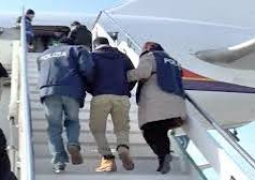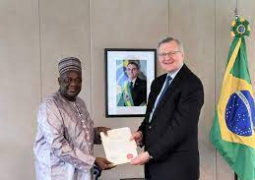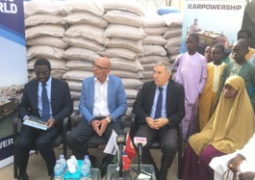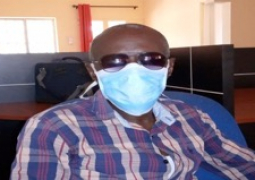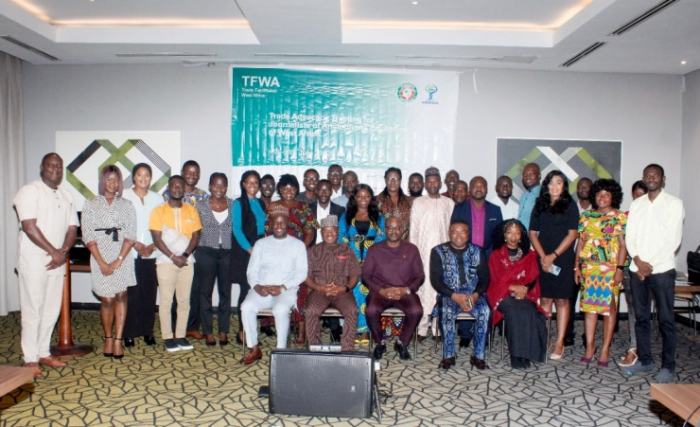
The participants from the five different Anglophone-speaking countries in West Africa met in Lagos, Nigeria to further strengthen their knowledge in trade relating matters for easy deliberation on their respective mediums.
The five days training that is funded by the EU, is targeted at enhancing the capacity of participants on effective strategies that could trigger improved advocacy and communications efforts towards ensuring that trade and trade facilitation instruments work for and impact positively of the population.
During the opening ceremony, Kolawole Sofola, Director of Trade at ECOWAS Commission, explained that international trades play important role in the creation of wealth, and jobs and improving the livelihood of the citizens. He continued that since the establishment of the World Trade Organization (WTO), international trade worldwide was deemed to be worth approximately $30 trillion in 2021.
He added that the African continent generally trades less than 2 or 3% of the global amount, saying that means Africa is not playing a significant role in international trade despite having a population of 1.3 billion people. Director Sofola continued that everyone knows how much trade contributes to international politics.
"We know how the war between Ukraine and Russia affected trade and it had a knock on our economy resulting in the increase of prices of food, fuel, and other resources. Despite the numerous trade agreements signed by Africa, there is a number of factors that continue in the continent in the emerging of world trade. Among which is our lack of productive capacity, our limited trade infrastructures, the high cost of trade across borders, and the lack of awareness on trade benefits and a large volume of informal trade."
He reiterated that the media plays a key role in ensuring that educating and informing the public on the latest development is essential and ensuring public awareness is raised barring government interaction. He added that the media also helps to provide opinions and monitor government actions and hold them accountable.
"ECOWAS has embarked on economic integration with the adoption of a number of instruments including the ECOWAS Trade Liberalisation Scheme, the Common External Tariff and other programmes that are developed to deepen regional integration and to lift millions out of poverty."
The head of Component, Transit and Trade Corridors, Bernard Tayoh, stated that the aim of the training was to build participants' knowledge on assisting trade protocols and initiatives of the ECOWAS region. He added that it’s also aimed to play a key advocacy role in the building of trade initiatives in West Africa. He said the Trade Facilitation West Africa programme (TFWA) is a donor programme funded by several countries including America, Germany, European Union, and the Netherlands.
"It is being co-implemented by the German Development Corporation (GIZ) and the World Bank Group. The training is aimed at improving the free movement of goods and services of the region which includes improving corridor efficiency.”
“Our support measures are aimed at supporting collaborative initiatives between the non-state actors and the public sector or aim at improving the trade facilitation environment in the region. With new protocols coming up, both in the region and continent, we deem it necessary to build the capacity of civil society organisations and journalists to understand the implications of these measures in order to play a key role in ensuring that private sector actors are able to take advantages of the opportunity created."


